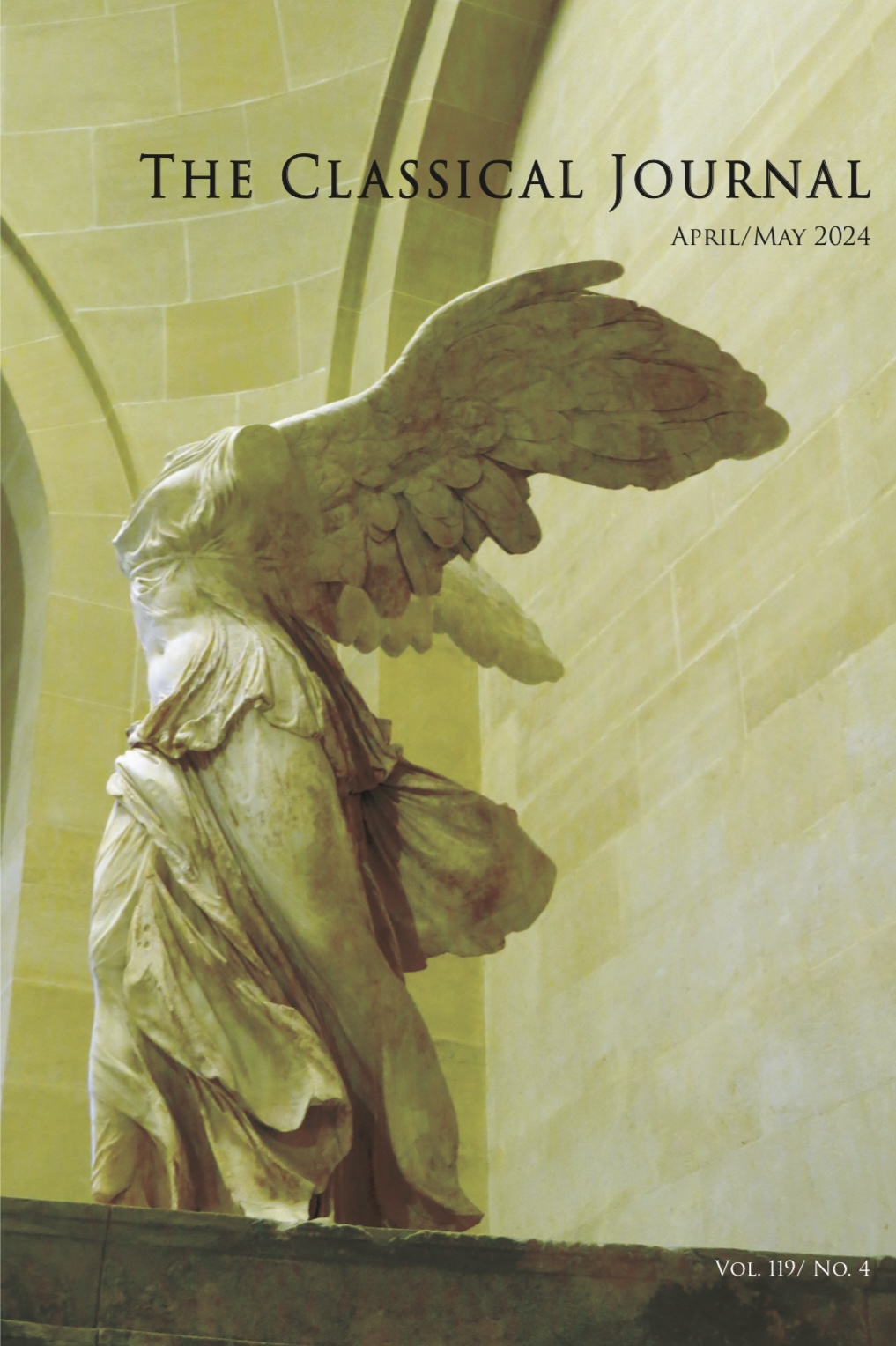The following articles are contained in CJ
107.1
Abstracts of Articles
"Am I Not the One...?" (Sophokles' Phil. 114): Neoptolemos and the Allure of Kleos
This study argues that Neoptolemos' desire to win kleos, so cleverly manipulated by Odysseus
in the prologue, is not subdued or displaced by other competing ethical demands, but rather
remains operative throughout the play. When combined with his resurgent Achillean phusis,
it leads him into a competition for "glory" with Odysseus in the recovery of Philoktetes;
it informs his decision to return the bow; and, ultimately, it frees him again to accept a
glory shared with one worthy of the name "friend."
Paying Archaic Greek Mercenaries: Views From Egypt and the Near East
jamin M. Sullivan
This study addresses the payment of archaic Greek mercenaries, a neglected subject.
Putting the Greek literary evidence into context with materials from the Near East and
particularly Egypt reveals that the invention of coinage did not bring about the concept of
pay for mercenary service. Rather, payment in forms such as plunder, uncoined precious metals,
and land was common in the east before the Greeks arrived. Payment in coin did not begin a new
tradition but rather complimented an existing one.
The Serpent in the Augustan Garden: Horace's First Epode and the Ara Pacis
The context for the simile of the serpent and the birds' nest in Horace's first Epode is
political, as well as personal, and it has points of contact with Golden Age imagery found
throughout Augustan poetry and on the Ara Pacis. The intrusion of a serpent into the great
floral relief of the Ara Pacis should be read against this background as a reminder of the threats
remaining for the new order and the precariousness of the imperial succession.
Imperial Representation and Reciprocation: The Case of Trajan
>Looking at the reign of Trajan, this article sketches how the various facets of the Roman
emperor's image in literary, visual and ritual media were manifestations of a continuous
process of negotiation between the princeps and three social groups that had the political
power to influence the imperial image. To illustrate this, the paper first develops a model
of imperial rule as a "system of acceptance." It then focuses on the relationship between
princeps and senate and analyzes one political ritual that took place exclusively between
the two: the gratiarum actio. Herein senators made abundant use of a rhetorical mechanism
of "affirmation and demand" to shape the emperor's image and make requests of him.
The article’s remainder is devoted to an analysis of, first, how this mechanism allowed the
emperor himself to influence the senators' behavior and to request certain loyalties of them;
and second, how even non-senators could make use of it to formulate their wishes about how the
princeps should behave.
FORUM: Making Assessment Work for Us
The Assessment movement may be here for the long term, and though it brings unwelcome
frustrations, it also offers opportunities to showcase the special strengths and virtues
of our discipline. Classics is uniquely well-equipped to navigate the Assessment maze
successfully. Not only is our field a venerable one with well-established norms, we can
make the case that studying the classical languages has a measurable impact on the holy
grail of today's educational goals: better writing.


